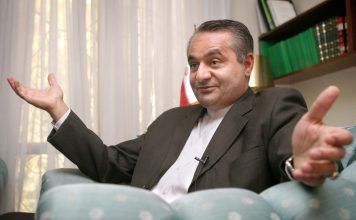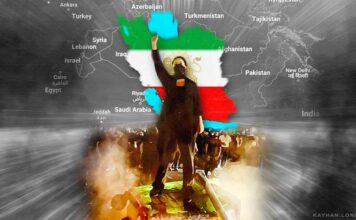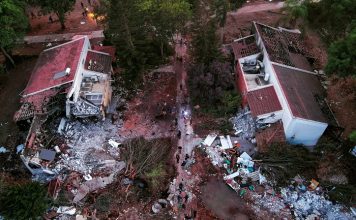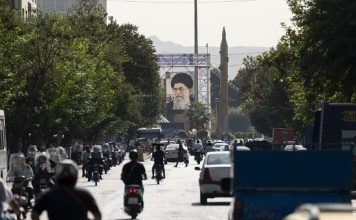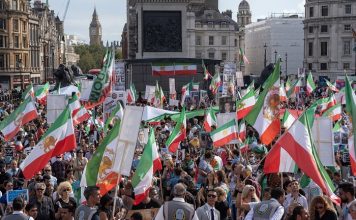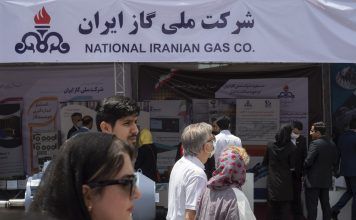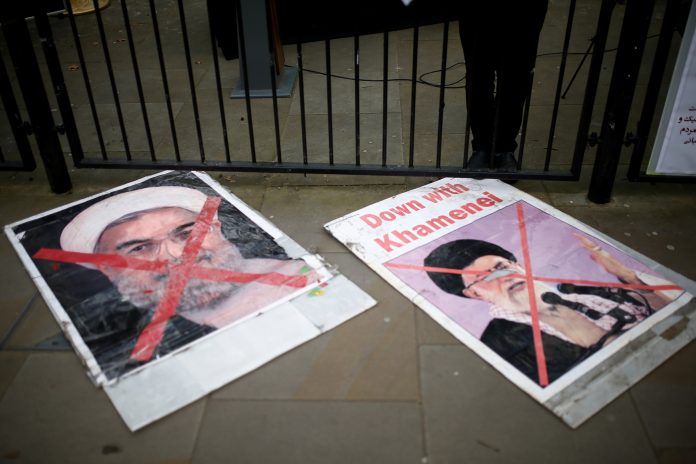
By Mehrdad Khonsari
[Mehrdad Khonsari, a former Iranian diplomat, is a senior consultant at the Iranian Centre for Policy Studies (ICPS). He submitted the following piece to Kayhan Life.]
The war in Ukraine has overshadowed the fact that, for the past several months, there has been an unrelenting series of public protests in the streets of numerous towns and cities throughout Iran.
These latest protests were initially sparked when access to drinking water and electricity became a serious issue during last summer’s hottest months. Since then, the situation has become exacerbated by a series of strikes led by teachers and the bus drivers’ union, and most recently by desperate people unable to feed their families because of rising food prices — especially a threefold increase in the price of bread — as well as runaway inflation and sky-high unemployment.
Incapable of addressing any of these problems, the Iranian authorities’ only response has been to firmly suppress defenseless people, leaving many dead and hundreds wounded or imprisoned.
It is no wonder that the traumatic experiences of the past four decades have left people looking in every direction to free themselves from the grips of a corrupt and incompetent dictatorship that has shattered their lives and deprived them of any hope for a better future.
Although the success of Ayatollah Ruhollah Khomeini’s populist revolution might still be a source of inspiration for many radical and Jihadi Moslems around the globe, it is nonetheless a fact that for most Iranians the experiences of the past four decades have proven to be something quite different.
The first bad omen for what would lie ahead came with the adoption of a new national constitution that incorporated Khomeini’s own reactionary doctrine of ‘Guardianship of the Islamic Jurist,’ which flagrantly repudiates any notion of democratic rule based on popular sovereignty.
Over the years, poor governance, gross mismanagement of the economy, massive corruption, total disregard for human rights, and discrimination against women as well as ethnic and religious minorities, have gradually wiped out any semblance of public trust, thus throwing into question the legitimacy of the regime for millions of Iranians.
With the election in June 2021 of Ebrahim Raisi as President of the Islamic Republic of Iran, all three branches of government are for the first time in the hands of hard-line fundamentalists ideologically allied with the Supreme Leader Ayatollah Ali Khamenei, even though together they constitute no more than a small minority of Khomeini’s initial followers who came to power in 1979.
Nonetheless, as a constituency, they and their supporters, led by senior officers in the Revolutionary Guards, senior radical clerics, various revolutionary organizations and charities with a dominant position in the country’s economy — now increasingly referred to as the ‘Deep State’ — have retained sole control of all of the key levers of power and of decision making through the security apparatus and various coercive forces, including the media.
Allied with Russia and China, and hostile towards the democracies of the West, the Deep State has gradually cast aside every shade of opinion advocating transparency and reform. Senior political figures such as former Prime Minister Mir Hossein Moussavi, who has been under continued house arrest for more than a decade after contesting the falsified results of the 2009 presidential election, represent just the tip of an iceberg that stretches to many other senior leaders and their support base who, for reasons of safety and security, have been much more guarded in expressing opposition to the way the country is being mismanaged.
These developments are in line with the country’s deteriorating economic conditions, for which the Deep State is incapable of providing any long-term solutions — even if Iran’s rising issues with the International Atomic Energy Agency are resolved, and an agreement to revive the nuclear deal, or Joint Comprehensive Plan of Action (JCPOA). Coupled with Iran’s increasing estrangement from the West and its regional isolation, they provide a wakeup call for all mainstream forces to re-evaluate their strategies in order to pose a serious challenge to the Deep State.
With daily protests throughout the country, and a highly disgruntled public united in its disdain for the Deep State, the potential for peaceful change under the banner of ‘national reconciliation’ has never been greater.
By drawing lessons from other successful struggles, such as the peaceful transition in South Africa which replaced the racist Apartheid regime with a vibrant democracy, millions of democratically minded Iranians committed to the principle of popular sovereignty can now focus their attention solely against the Deep State with a single demand that can salvage their future and that of their nation: namely, a new democratic constitution free of all theocratic aberrations which respects the rights of all Iranians for equality, justice and peaceful co-existence.

